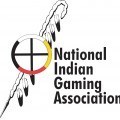
Approving PokerStars’ New Jersey online poker license was a difficult process, but the head regulator in the state says that’s the nature of reviewing companies invested in international gray markets. (Image: pokernews.com)
New Jersey online poker is experiencing its first-ever renaissance largely thanks to welcoming PokerStars to the confined Internet gambling territory. Revenues and profits soared in March, and the outlook is bright for the three Garden State online poker rooms.
But for regulators, specifically New Jersey Division of Gaming Enforcement (DGE) Director David Rebuck, the international Internet casino industry is causing havoc on his agency’s ability to form a systematic procedure of checks and balances when reviewing a potential licensee’s application.
The main hurdle is the ever-challenging gray market and attempting to decipher if an operator trying to enter New Jersey is simultaneously operating elsewhere illegally.
In an advisory bulletin released last week to the state’s Acting Attorney General Robert Lougy, Rebuck explained that it’s imprudent for his agency to try and adopt a structured methodology in reviewing operators that service international gray markets.
The DGE clarification is likely in response to its review of Amaya’s bid for inclusion late last year. The parent corporation to both PokerStars and Full Tilt, DGE officials poured over materials for nearly a year investigating Amaya’s worldwide operations and trying to determine if its newly acquired properties were still operating in black or gray markets.
50 Shades of Gray
Rebuck’s role that comes with a six-figure salary isn’t some cozy governmental positon but one with serious responsibilities. The very nature of the casino and gambling industries keeps Rebuck’s department in the media spotlight.
Approving brick-and-mortar casino licenses has traditionally been more cut and dry as the DGE was dealing largely with domestic multibillion-dollar corporations like Caesars. The legalization of Internet gaming made Rebuck’s job much harder as companies are applying to operate in the state with no physical presence other than a land-based partner.
“Cross-border Internet gaming operations have caused uncertainty with gaming regulators regarding the legality of Internet gaming operations of their licensees in foreign jurisdictions and how those activities should be considered when evaluating suitability for licensure.” Rebuck commented.
The DGE executive says his approach moving forward is to take each case individually.
“The Division, in assessing the legality or Internet gaming in a foreign jurisdiction, will not adopt a standard that could erroneously substitute its own judgment for that of another sovereign jurisdiction’s executive, legislative or judicial authority. The state of the law in many jurisdictions is constantly evolving . . . making it extremely difficult for the Division to adopt a more stringent approach.”
Down With GVC?
Rebuck’s team is quickly implementing its no-standard approach as GVC Holdings waits patiently for the DGE to approve its application for partypoker, the network it acquired in 2015 when it purchased bwin.party for $1.72 billion.
Bwin.party subsidiary Sportingbet functions from Malta and has long operated in countries featuring questionable online gambling laws.
Sportingbet’s inclusion under the GVC umbrella will certainly be reviewed by Rebuck and the DGE in what will be the latest difficult decision the gaming director will be forced to call.








